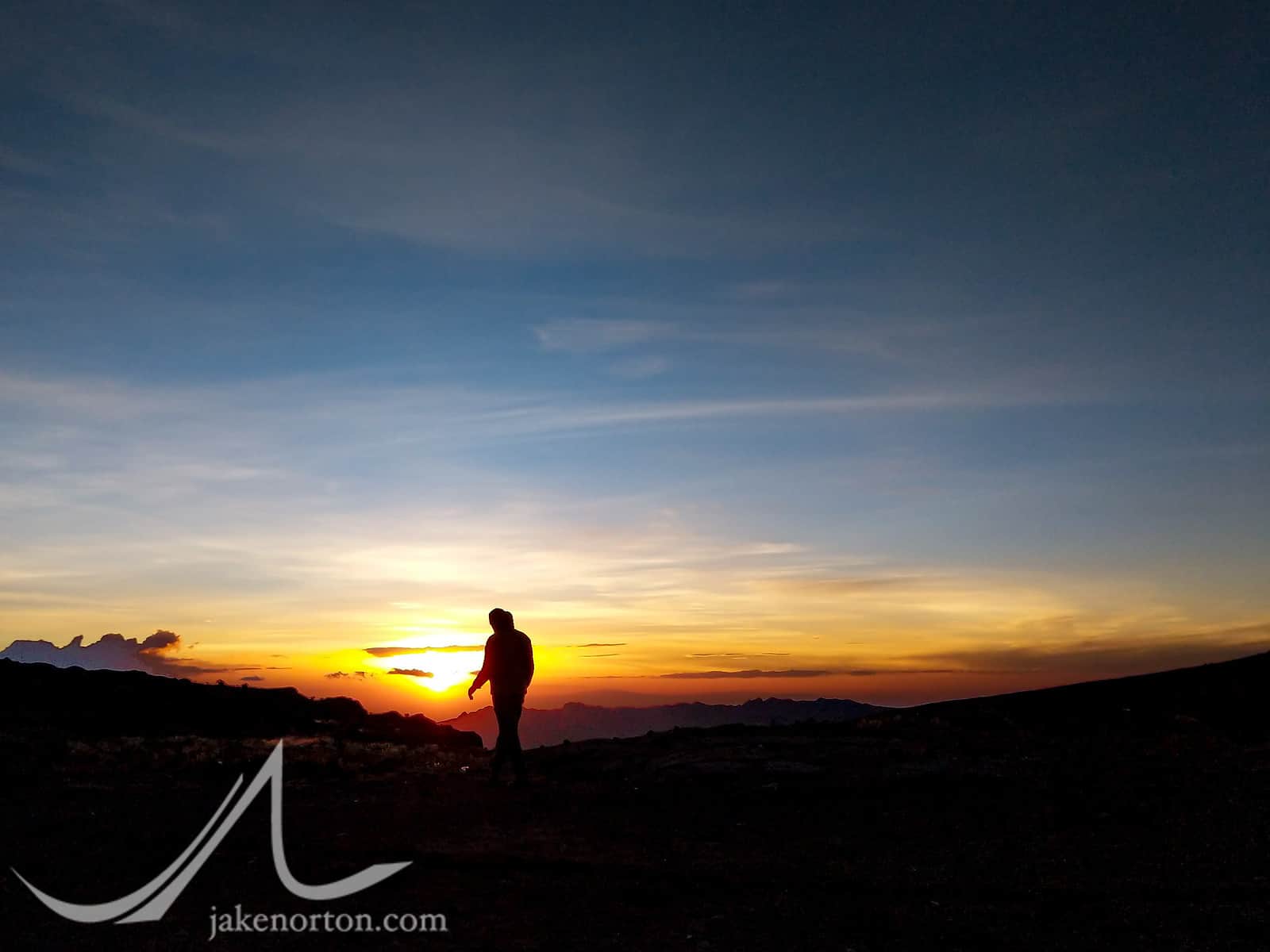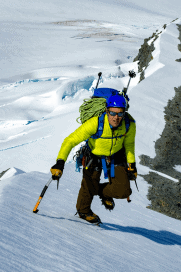I’ve always loved to explore. Maybe not just loved; perhaps needed to explore is more accurate. Maybe it’s in my DNA somehow, but I’ve always been drawn to the unknown - to what I don’t know - and the challenge of trying to figure it out.
I think my love of the mountains, of climbing, was borne of this need. In climbing, there’s always another ridge, a distant valley, a far horizon to head toward, an uncertainty, an unknown to embrace, physically and mentally.

And, out of that desire to explore - the desire to not know and try to figure out - has come the varied and various things I do: climber, guide, writer, speaker, photographer, filmmaker. I don’t do any of them particularly well, am certainly not a “professional” at any of them, but that is just how I prefer it: still a lot to learn, a mountain to climb, a distant horizon to move toward.
The other day, I picked my daughter up from school and asked her about a big test she took.
“I got a 50,” she said, chagrinned, a look of sadness on her face. “I can retake it and get my grade up, though. But, it’s so hard, I just can’t remember all the answers.”
I am terribly fascinated with things that I don’t understand.
- Richard Saul Wurman
That hit me: remember all the answers. This was a subject she once adored, one that pulled deeply at her experiences, provoking questions, revealing mysteries, begging curiosity, sparking engagement. But now, as a freshman in high school, that subject - and most others - was diminished into the rote memorization and regurgitation that seems part and parcel of our educational system: Don’t ask, don’t question, don’t engage the unknown, just read, write, recite, give the answers and get the grade.
And, it’s not just in our schools, it’s in our society, a structural element based on fascination with expertise and omniscience above all else. We tend to Google the answer rather than asking the question. We cherish the knowledge, the answer, more than the wonder and the mystery and the pathway that revealed the knowledge in the first place.
Going to sleep last night, this haunted me, thoughts ricocheting in my brain, trying to make sense of the problem and work toward some semblance of an answer, a solution. Needless to say, I didn’t come up with one, but did revisit some wonderful thoughts on the subject by Richard Saul Wurman, the founder of TED and an incessant, stubborn champion of embracing the unknown.

I’ll share some of his thoughts below for this Thursday Thought, and would love to hear your thoughts on it all - please leave a comment!
The schools in this country are one of the biggest reasons we're all so screwed up. Our educational experience consists of three great lies. Lie number one is, It's better to say, 'I know' than to say, 'I don't know.' Lie number two: It's better to answer a question than ask a question. Lie three: It's better to worship at the foot of success than understand the nature of failure. Those three lies have screwed our society, and it's by overcoming one at a time--or two at a time or all three --that you can make some breakthroughs in your creative activities.
- Richard Saul Wurman, Inc. Magazine
Our educational system is based on the memorization of things we're not interested in, bulimically spewed out on a paper called a test and then forgotten. We learn to use our short-term memory rather than our long-term memory. Many of our interests are shunted aside. The typical teenager's interests, in music and cars and sports, are looked on as second-rate themes for their lives instead of embraced as connections to all knowledge and wisdom. I mean, the car connects to the history of transportation, to our road systems, to our cities and our highways. It connects to the balance of payments and economics around the world. To steel and iron, and steel construction, and plastics and design. It connects to physics and mathematics and chemistry. It connects to foreign languages and culture. To medicine and governmental policy. And all the things the car connects to connect to everything else. So do sports. And so does entertainment, which connects to technologies of all sorts, to design and hardware and software and information.
- Richard Saul Wurman, Inc. Magazine
When you sell your expertise--whether to a boss, a client, or even a friend--you have a limited repertoire. On the other hand, when you sell your ignorance, when you sell your desire to learn about something, to create and explore and navigate paths to knowledge--when you sell your curiosity --you sell from a bucket that's infinitely deep, that represents an unlimited repertoire. My expertise has always been my ignorance--my admission and my acceptance of not knowing. My work comes from questions, not from answers.
- Richard Saul Wurman, Inc. Magazine
Well if you do something and it turns out really well, why would you do it again? I realized a little while ago that if you do something, and you keep on doing it better and better and better, that is almost embarrassing. I did a conference a year and a half ago, the WWW Conference, and it was the best conference, by far, that I’ve ever done. It was terrific. But what people asked when it was over was when was I going to do it again? (Laughs) What a funny question. Why would I do it again? It worked so well. I mean, I did it, why do another one? Why wouldn’t you choose something else to do?
- Richard Saul Wurman, The Talks
My struggle has been to discover the connection that leads from information to memory. The junctures of road-to-road and path-to-path celebrate that connection. That connection is learning, and learning is remembering what you're interested in.
- Richard Saul Wurman, Inc. Magazine
Want to dive a bit deeper into the world of Wurman? Take a watch with this short video:



That's a cool article Jake and resonates today where we need to be "right" all the time or at least appear to be so. As part of my job in Federal Government here down under we need to be right and all knowing all of the time. No excuses. Exploring the unknown and challenging my beliefs outside of work is a great release.
Wurman is totally right to explore new information, ideas and be willing to be constantly "wrong". I wish I had his courage more often.
Thanks Alex
Hi Alex, Thanks for your comment and thoughts and insights. It is so strange this need to be "right" rather than strive forward and be happy with being wrong...and finding the path toward "right." I'm not sure how the education system is in Aussie, but up here so much is driven by providing answers rather than asking questions, which in my mind is how one produces automatons, not thinkers, not leaders, not problem solvers. And, yes on Wurman - he is quite a unique person, and one whose courage I wish I possessed, and with whom I'd love to sit and share a beer or coffee and lots of conversation!
Thanks, my friend, and hope you're well!
Hi Jake,
I entered your site for the first time to read your opinions on Noel Odell's last sighting of Mallory and Irvine. Which, by the way, I found fascinating and look forward to doing a more in-depth study. However, I was side tracked by your reflection on education. The comments and citations you presented remind me of an outstanding article written by Mort Adler in 1979 on how and why we obtain knowledge. I thought you might enjoy it.
http://deadphilosopherssociety.com/wp-content/uploads/2014/09/HOW-TO-BECOME-EDUCATED.pdf
This is awesome, Anna. Thank you! I have added it to me reading list, and am looking forward to it. Thanks again!